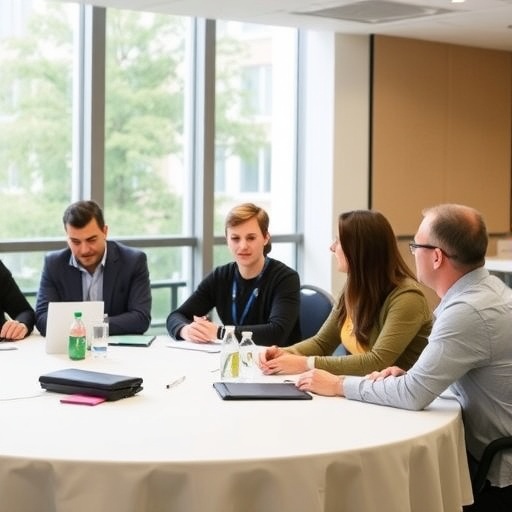Between October 27 and 30, 2025, the SELINA project reached a significant milestone by convening its 6th thematic workshop in Trento, Italy. Hosted by the University of Trento, this assembly gathered approximately 80 participants both in person and online, uniting a diverse group of experts dedicated to advancing the integration of biodiversity and ecosystem service assessments into evidence-based public sector decision-making. The workshop exemplified SELINA’s commitment to fostering a robust science-policy-practice nexus crucial for sustainable environmental governance.
The central theme underscoring the workshop was “Evidence-based decision-making in the public sector.” This focus directed a series of meticulously planned sessions designed to probe the intersection of ecological science and practical policymaking. Over four intensive days, participants engaged in dynamic exchanges, sharing substantive updates on SELINA’s progress within its public Demonstration Projects. These interactions were aimed at refining methodologies and outputs to ensure their maximum applicability and impact in policy contexts.
Opening the workshop, project leaders presented an overview encapsulating recent advancements and upcoming objectives within SELINA’s multifaceted workstreams. Special emphasis was placed on urban ecosystem management, where strategies to enhance green infrastructure were explored in depth. Discussions illuminated the nuanced needs of decision-makers operating at various governance scales, from municipal to national levels, underscoring the importance of tailored approaches in ecosystem service application.
A pivotal segment of the workshop involved detailed presentations on the Compendium of Guidance (CoG), a cornerstone decision-support tool developed by SELINA. The CoG serves as an integrative framework facilitating the assimilation of complex ecological data into accessible formats for policymakers. Latest iterations of the CoG were showcased, highlighting enhancements aimed at broadening its utility within diverse public sector environments. This tool exemplifies how sophisticated scientific outputs can be rendered actionable for real-world decisions.
The workshop’s second day offered a compelling blend of field excursions and targeted working sessions. Participants immersed themselves in the Trento region’s rich biodiversity, with visits to Mount Bondone and the Viote Botanical Garden providing tangible experiences of nature-based solutions in action. These excursions underscored the importance of place-based knowledge and ecological context in shaping effective biodiversity strategies, reinforcing the principle that policy frameworks must be grounded in local realities.
Afternoon sessions on the second day revisited the strategies for communication, dissemination, and stakeholder engagement. Recognizing that scientific findings alone are insufficient to drive change, participants delved into methods of amplifying impact through effective engagement across public and private sectors. The dialogue emphasized bridging gaps between diverse stakeholders, fostering collaborative networks essential for cohesive and sustained ecosystem stewardship.
On the third day, the focus shifted towards the technical integration of ecosystem condition assessments, services valuation, and natural capital accounting within SELINA’s demonstration projects and test sites. Participants collaboratively refined datasets and aligned analytical outputs, laying the groundwork for forthcoming joint publications. A critical part of these discussions centered on ethical considerations and justice implications inherent in ecosystem assessments, highlighting how inclusivity and equity must permeate environmental governance.
Throughout the workshop, the ethical and justice dimensions of ecosystem service assessments were given particular attention. Discussions probed how procedural fairness and distributional equity influence both the legitimacy and effectiveness of ecological policymaking. These reflections signal a progressive shift toward embedding social sciences into environmental assessments, an approach vital for addressing complex societal-environmental challenges innovatively and responsibly.
The culmination of the workshop was marked by a ceremony that celebrated the collective achievements of the participants over the four days. Symbolically, stewardship of the SELINA initiative was handed over from the University of Trento to the Cohab Initiative and the Capitals Coalition. This transition signals a strategic pivot towards enhancing private sector involvement, recognizing the indispensable role businesses play in ecosystem management and biodiversity conservation.
Looking ahead, SELINA’s 7th workshop is slated to occur in Galway, Ireland, during the summer of 2026. This upcoming event is anticipated to foreground private sector engagement, advancing SELINA’s agenda of reinforcing the interface between science, policy, and business sectors across Europe. The evolution of this multidisciplinary dialogue underscores the project’s adaptability and its pivotal role in shaping holistic environmental governance paradigms.
The workshop’s format reinforced SELINA’s wider mission to provide actionable frameworks and tools that can be adapted and scaled within different governance contexts. By prioritizing both scientific rigor and practical usability, SELINA supports decision-makers in navigating the inherent complexities of biodiversity and ecosystem services within an increasingly anthropogenically altered landscape.
In sum, the 6th SELINA thematic workshop in Trento not only showcased interdisciplinary scientific collaboration but also emphasized the critical need for integrated analytical tools and stakeholder partnerships. The convergence of field experience, policy discourse, and ethical considerations provided a comprehensive platform to propel ecosystem service assessments from theoretical constructs to influential policy instruments.
For continuous updates and further insights, interested professionals and stakeholders are encouraged to explore the SELINA website and follow the project’s active social media channels on LinkedIn, Bluesky, and YouTube. These platforms ensure sustained engagement and dissemination, promoting transparency and inclusivity in the ongoing journey toward ecosystem-informed public sector decision-making.
Subject of Research: Evidence-based decision-making in biodiversity and ecosystem service assessments in the public sector.
Article Title: SELINA Project’s 6th Thematic Workshop Advances Science-Policy Integration for Ecosystem Governance
News Publication Date: October 2025
Web References:
Image Credits: Pensoft Publishers
Keywords: Science communication, biodiversity, ecosystem services, evidence-based decision making, public sector, natural capital accounting, urban greening, ethical governance, stakeholder engagement




